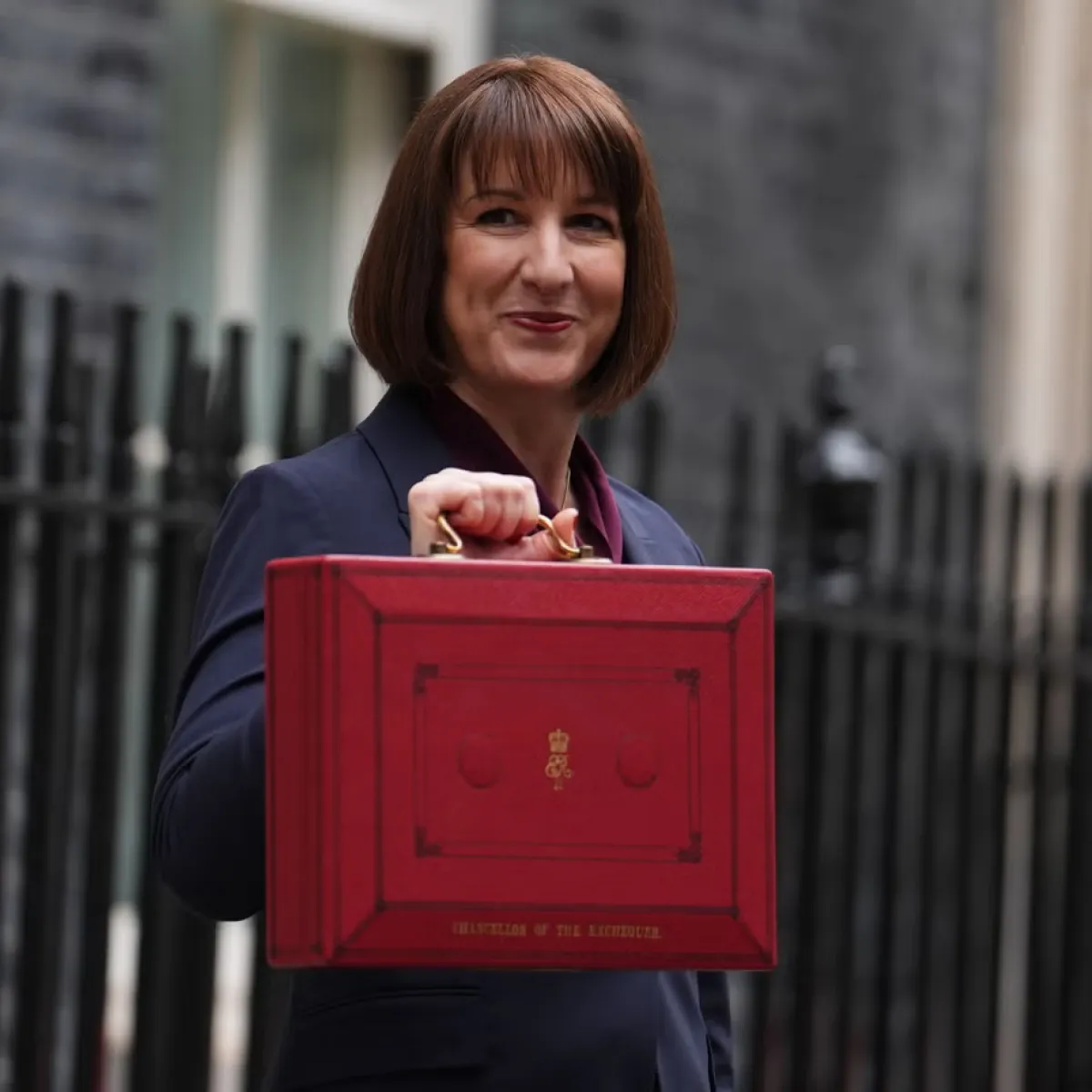This website uses cookies. Learn more
Korfuzi, Insider Trading & Money Laundering
"You have to take responsibility, you have to admit that there's a degree of culpability, but importantly, you have to behave in a way which demonstrates that remorse is genuine."

(mis)Conduct, Money & Reputation
Podcast Series by Lansons and Katten. Welcome to your monthly dissection of misconduct in financial services, from the rules and regulations - to the reputational fallout when things go wrong. This podcast series is an essential listen for those in asset management (and more broadly financial services) who are responsible for the safeguarding of business and brand; from compliance and corporate affairs to comms and marketing.
Listen via Spotify & Apple Podcasts
Episode Background
E03: Korfuzi, Insider Trading & Money Laundering
Insider trading, money laundering, and reputational risk in asset management take centre stage in this episode, featuring the recent conviction of Redinel and Oerta Korfuzi.
David Masters and Neil Robson examine how confidential market information was exploited, how the FCA uncovered the scheme, and why the asset manager involved avoided lasting reputational fallout. The conversation also considers how remote working exposed new compliance risks and why historic control failures still carry weight.
They revisit past high-profile cases including Philippe Jabre and David Einhorn, explore the growing crossover between insider trading and money laundering, and ask whether a damaged reputation in asset management can ever truly recover.
**
This podcast contains discussions around sensitive topics, including sexual assault, abuse, and other potentially distressing subjects. Listener discretion is advised. If you or someone you know is affected by any of the issues raised, please consider seeking support from a trusted organisation or professional.
Episode Transcript
Podcast Narrator: This is misconduct, Money and Reputation, a podcast by reputation specialists Lansing's and law firm Katten.
David Masters: Hello and welcome to the episode. This is our third episode in our second season for those working in financial services, particularly in and around asset and wealth management, where we take a look at those tricky areas, where regulation and reputation intersect. For listener discretion, please be advised that some episodes do include sensitive and potentially distressing subject matters. My name is David Masters, Director and Asset Management Lead at reputation consultancy, Lansons Team Farner.
Neil Robson: And I'm Neil Robson, financial services regulatory Compliance Partner at Katten.
David Masters: So, today we are going to be covering the thorny area of Insider Trading. Four days ago, we witnessed the sentencing of two siblings for insider dealing.
Mr. Redinel Korfuzi, who worked as a Research Analyst at a fairly large asset management firm, conspired with his sister, Oerta Korfuzi, to use confidential information harvested as part of his job, within minutes of him seeing it, to deal in the shares of over a dozen companies prior to the market announcements which they then made. This netted them over 1 million pounds sterling. Neil, perhaps you could give us a brief summary of the key facts of this case.
Neil Robson: Thank you, David. Mr. Redinel Korfuzi worked as a research analyst at an asset management firm, as you referenced and as part of his job as an analyst, he regularly obtained confidential price sensitive information on publicly traded companies. So basically, this came into the business, to the asset management firm as part of a market sounding. So, he received wall crossing emails from brokers. These were sent to his colleagues, but he was copied on them so that he could do his research analyst role. Now, those emails that were coming in from brokers, above board, the way that that happened, but basically it was asking the asset manager what their perspective was on particular companies raising equity in the markets or selling big blocks of shares which existing shareholders owned.
But the position was, as we've seen in the recent court case and now the sentencing, as you say, which was just a few days ago, was that between December 2019 and March 2021, as soon as he got that information in, he sent it across to his sister. And they use that information to deal in the shares of at least 13 companies ahead of those market announcements. So, they basically they were front running the information to trade before the information was made public. Now that's insider dealing.
David Masters: Before we jump into a little bit more detail, I think it's worth just pointing out here that this actually hasn't had a massive reputational impact on the employer, the asset manager we've referenced. It is embarrassing for them. It does raise questions about their control. But I think overall the public discussion has not really focused on them, it's much more focused on the defendants.
And I think we would have to say that the employer here has responded fairly well. They've announced tighter controls, etc. You know, clearly some investors will have become a little bit extra twitchy, but the general sense is that there's been no real client harm. And I think that's one of the positives out of this, but sorry, Neil, back to the case.
Neil Robson: Yeah. So, basically the trades that they placed, where in accounts held through Mr. Korfuzi's sister, as well as her personal trainer, and his partner, who were acquitted of all the charges. They were basically just being used by the Korfuzi siblings.
But they use contract for differences, taking positions at the value if the relevant shares would go down and then close the position after the market announcement. What I think is really quite interesting here is that the FCA found out about this through their market monitoring systems, looking at spikes and abnormal trading activity in the markets. Mr. Korfuzi was sentenced to six years in prison and his sister was sentenced to five years. But as well as that, they were also convicted of money laundering because as part of the FCA's investigations, which raided their various homes but also, found a safe deposit box in Knightsbridge, where they were 25,000 pounds in cash.
But the money laundering case against them, actually targeted something like 200,000 of dirty money that they were sending to bank accounts in their name in Albania, which apparently was unrelated to the insider dealing. So, it would appear that the Korfuzi’s have a bit of a web of illicit activities, involving money and cleaning dirty money. So, I think, as I say, the fact that the FCA's own systems found this and then they investigated as a result, that's quite telling. But also, the fact that the FCA as an enforcement agency, did a multi-site search and arrest operation, which just goes to show that when the FCA does get enough evidence, they really go for it. And it's just one of several cases over the last sort of two decades where the FCA has started to truly investigate and enforce for insider dealing, to show that the UK markets are clean and being operated by good people.
David Masters: Going right back to the beginning Neil, you talked about wall crossing. So maybe you could just give us a little bit more on what wall crossing is for the uninitiated.
Neil Robson: Yeah. So, kind of go back to basics, just a quick step before wall crossing. So, insider dealing under the market abuse regulations basically means dealing on the basis of or while in possession of inside information. Now inside information is information, which is precise, which is not generally available to the public and it relates directly or indirectly to one or more issuers. So, the companies themselves or to the relevant shares for example.
And it would, this is a subjective term, if it was generally available, be likely to have a significant effect on the share price. So, it's got to be very, very specific information. And the whole point with the wall crossing is that a broker is permitted to share inside information with market participants, such as big asset managers or market makers, to basically do a pre sounding, to find out if this announcement were to be made public, would you trade, would you be interested in the activity that is in question. You know, whether it's a be a big block trade, so a shareholder selling down a big portion of their holdings or a listing or an IPO or new information, a new issuance for example.
So, brokers are allowed to do that. But there's a very strict process they have to follow which is called wall crossing, where they have to tell the recipient of the information at the start of the call, “This is a wall crossing call. In this call, you will be receiving inside information. You have duties and obligations in respect of that information, and you can't deal in the shares of the company in question until it becomes public”, so, when there's an announcement. So that wall crossing process is very, very widely used. Typically, a lot of asset managers say no, we don't want that information. We don't want to go restricted. We don't want to be tied up and not able to trade these shares until such time as the information becomes public.
David Masters: I think there are quite strict disclosure rules, aren't there? So once this information has been shared, actually it has to be disclosed quite quickly, once anything has been decided that's going to happen.
Neil Robson: That's right. Yeah. Because the wall crossing process, market sounding, it's not intended to leave people in limbo for months at a time. So, as I say, the market abuse regulation has a quite a strict process that has to be followed. And it's when that goes wrong or when people use the information as the Korfuzi’s did, that we get insider dealing and it's quite a significant risk area.
David Masters: That reminds me and this is going back in time a little bit, but Philippe Jabre comes to mind, in the early 2000’s, Jabre was quite a big deal, he was one of the top performing hedge fund managers, convertible arbitrage. But that all came to a bit of an abrupt stop Neil, so I don't know if you can talk us through a little bit about what happened there.
Neil Robson: Yeah, so that was back in 2003, essentially where he was wall crossed. So, he was working, at GLG at the time, which doesn't exist anymore. But he was a portfolio manager for one of the GLG funds. He short sold the relevant shares that he'd receive information on and whilst he got fined and GLG got fined by the FCA, which quite big fines at the time, or sorry, FSA as it was back then. Big fines, I mean, £750,000 in 2003 was a significant chunk of money and the FSA tried to make an example of him, but what was interesting was that his defence there, was that it wasn't criminal activity, because actually the market abuse regulation at that time was very vague. There was a greyness to it.
And the FSA Regulatory Decisions Committee was trying to push him on Principle One which is the principles of market integrity back at that time. And his defence was, well, I didn't do anything that anybody else in the market wasn't allowed to do. Now that’s really telling that since then, the market abuse regulation has been significantly tightened, and there's much more clear guidance now on what you can and can't do when you're subject of a wall crossing.
David Masters: At the time, a client came to see me and asked me for a sort of reputational impact study because, other people within the business were interested in launching a fund with Jabre or investing in a new fund that he was launching, he'd gone out to Geneva. And it was very clear when I started to look into it that a lot of effort had been put in trying to rebuild Jabre’s reputation, mostly by repeating a lot of what you've said then and sort of really blaming the regulator. They threw the book at him, completely outsized, a penalty completely disproportionate to the level of crime, it was the level of regulatory breach. But he wasn't really doing anything that other people aren't doing all the time, he was trying to normalise his behaviour.
Neil Robson: Well, his reputation in London certainly was shot at the end of that, in the sense that big institutional asset management firms, whilst he might have had a fantastic track record in performance of the funds he was managing were great. But when you've been tarred with the dodgy activity type of, moniker label, reputable asset managers don't want to touch you. So, he ended up moving to Geneva, where he set up another fund, which he then shuttered a few years later and moved home to Lebanon to run a brewery of all things.
David Masters: Yeah. Well, exactly. There are other examples of this and because people don't ever quite get beyond what happened. So, there is always going to be question marks, which is always much more challenging for the fund manager in these situations as well, when they're trying to rebuild their reputation through launching another vehicle.
Because the way that people react and deal with them is always going to be different and is evolving all the time, today it just wouldn't happen. You mentioned earlier that big, big institutional investors wouldn't go near him, the wealth communities are much more of that mind now, they’ve evolved. And even I think with family offices, which have historically been a little bit more focused on values and, alignment of those sort of things, governance and regulatory compliance are much more higher up their agenda. There's been quite a bit of research around this.
Neil Robson: Absolutely. And it puts Jabre in the same sort of camp as Neil Woodford, not quite the same as Crispin Odey, of course, that was a whole different issue, as we discussed in the very first episode. But nonetheless, when the reputation has been significantly harmed, as you say, institutional money, the wealth community, family offices, you don't really want to be associated with someone with a dodgy reputation.
David Masters: What Jabre benefited from when he set up his follow up fund, was he was getting a little bit of forbearance from investors because he had done such a great job in the past. But ultimately the regulatory environment, the investor attitude, they all shifted while he had that second fund up and running, so, it became much harder for him.
And institutional investors, family offices, etc., they've only become more focused on regulatory issues, performance. Historically, performance was very much the driver of reputation in asset management, particularly the sort of hedge fund and alternative investment management space. But that has now passed. Yes, performance is important, but you have to tick an awful lot of other boxes as well, and you have to be able to demonstrate that you're the right partner for a lot of these big ticket investors to get in bed with.
Neil Robson: Yeah. And at the end of the day, they're small sea conservative these days reputation is a big deal. If you look back, the big case after Jabre, nine years later, 2012, was Greenlight Capital and David Einhorn, where he famously, as soon as he was wall crossed by the broker, picked up the phone to his traders in London and said, sell everything, sell the particular stock that was the subject of that wall crossing. And he then defended himself against the FSA investigation, which the FSA ultimately, they should have thrown the book at him because clearly what he was doing was based upon the inside information he had received. But they fined him 3.6 million. The FSA fined Greenlight 3.5 million. Again, this is the FSA. This is the UK regulator showing its teeth.
In the end, he was found to have been negligently market abusive. Not intentionally, which I find bizarre, because he ended up fighting it, David Einhorn is quite an aggressive portfolio manager. And to rebuild his reputation among his US investor base, he kept saying to the press, I didn't do anything wrong. He didn't do anything wrong under the US rules, but he did under our rules here in the UK. But to fight back, the FSA actually released transcripts of all the phone calls, which are very, very clear, he knew exactly what he was doing. So, it's an interesting case that they could have gone much stricter with him on that. But at the end of the day, he remained a portfolio manager in the US, and I believe Greenlights still going.
David Masters: It does become harder to raise capital when you are a manager who has these sorts of blemishes, these sort of blots on your copybook. The other thing we talked about with the Korfuzi’s was money laundering. Traditionally, money laundering has been thought of much less of an issue for funds and fund managers relative to banks. But I think that's beginning to change. And I certainly know from an investor point of view, particularly, again, these big-ticket players that money laundering and ACAB regulations are uppermost in their mind. So, Neil, again, I'm going to have to turn to you for a quick explainer of what it is we're talking about here.
Neil Robson: So, money laundering under the Proceeds of Crime Act, also known as poker, money laundering is defined essentially as concealing, disguise and converting, transferring or removing criminal property. So, turning the proceeds of crime into clean money, that's definitively money laundering.
It also includes, quite broadly, arrangements that facilitate the acquisition, retention, use or control of criminal property. And it includes assets acquired indirectly from a crime as well. So, any money gained from insider dealing is, by definition, the proceeds of crime. Now, certainly in the asset management world, as you say, I mean AML, anti-money laundering hasn't been a real focus area for certainly a lot of the last 2 or 3 decades, in the sense that it's the administrator who does the checks and verification of investors into a fund, the manager itself, managing the fund, trading the investments, only really has to worry typically about the counterparties they're trading with, not the investors in the fund, in the sense that they're one step removed.
But I guess if you were managing managed accounts, of course, you've got to do your AML checks, your KYC on your clients because you're facing those investors directly. But it's certainly an area now because the FCA much more typically now when there's been an enforcement action, they'll look at the proceeds of the illicit activity and say, well, hold on a minute that's proceeds of crime. Therefore, we can do a double whammy, and they can hit the defendant with money laundering as well. So, it's much more commonplace these days. If the FCA has got enough evidence they'll go for it.
David Masters: Many years ago, before I joined Lansons, I worked for a company called Micropal it was all about fund performance and I was very heavily involved in our emerging markets products. And one of the markets we covered was Brazil. And one of my colleagues and I, became quite concerned about some of the asset flows into and out of some of these domestic Brazilian funds.
And in fact, I think we even stopped reporting on them for a short period, until we got what we could at least considered to be a relatively satisfactory answer, because it was particularly noticeable around sort of short-term bond funds, money market type funds. What we noticed was, some very, very sharp increases in AUM, followed not long after by very, very sharp decreases in AUM. And originally, we looked at a whole variety of issues, which might be, was it currency conversion errors or was it just simply a data error.
Everything was a bit more manual than it is today. And eventually we got a response from the fund sponsors about seed capital and things like that, which eventually we decided we would live with. But we were quite concerned at the time about the potential that this was people parking, entrusting money into investment vehicles and then taking it out again once it had been cleansed. But we could never find anything to actually prove that. But let's go back to the Korfuzi’s, I think the other thing that's interesting about this case is that it all took place in the Covid era.
Neil Robson: Indeed.
David Masters: And it was all about those early working from home days. We all remember them quite fondly, or maybe not so fondly, depending on how it went. But we all know now that, financial services firms, particularly US banks and Asset Managers, are very keen to get everyone back in the office 4 to 5 days a week. And perhaps have given everything we've talked about. We shouldn't necessarily be that surprised by that. But can you just give us a little bit more Neil on the whole sort of working from home elements of this case?
Neil Robson: Yeah, it's interesting because according to press coverage of the submissions that were made by the prosecution team during the Korfuzi’s court case, Mr. Korfuzi himself was able to obviously work from home. He was getting this information on his computer at home, remote working as we all were. So, in many ways, he was able to use that as a cover for his insider dealing activities. But what's interesting is that, right at that time, the FCA themselves were conscious that this was a really significant area of risk. And so, in the FCA's MarketWatch newsletter, number 63, which was published in May 2020, the FCA said firms really do need to consider whether they have additional controls in place. Do they need to put in place further restrictions in relation to the access to inside information by staff and by other persons living in the same household.
Because, if you think about a junior analyst, research analysts, they if they are that junior, they might be in a shared house, you know, are they working at the kitchen table? Point was the FCA focused on that at the time and said, you really ought to be looking at this because ultimately there's a legal duty for firms under Principle Three that you've got to have proper management and control of your business. And that does mean if staff are working remotely and they're doing your business at home; your controls need to extend to that person's own home. And the principle is that the firm has to take reasonable care to organise and controls, its affairs responsibly and effectively with adequate risk management systems. And the adequacy of risk management during the Covid era was obviously much more heightened.
But as you said earlier, Mr. Korfuzi’s employer, took appropriate action, made sure that controls were in place, and everything was deemed to be, quote, ‘adequate under the FCA's rules’, which is why there was no action against the employer there. But at the end of the day, that return-to-work point that you referenced does mean that we can control people much better when they're in the office. We know who's looking over their shoulder. You know, we've vetted people to be on the trading floor.
David Masters: Yeah, but sometimes when we know who's in the office, we don't necessarily know what they're up to. There's a there's a very famous case, isn't there? From about 2004, a former secretary of, somebody at a big investment bank. And this is one of those stories which has sort of dogged a few people ever since. So maybe you could give us a little bit more on that one as well.
Neil Robson: Yeah. So Jotty Delory, she was a secretary to a number of investment bankers, I think there were three of them that she worked with exclusively. And because of the pressure of their jobs, she had access to their bank accounts. She could sign checks on their behalf. Back in the days, 2004 before electronic banking, but they trusted her implicitly. She ran their lives for them because they were at the desk 18 hours a day.
But equally, they were so wealthy, they were being paid such large bonuses that ultimately, they didn't notice for several years that £10,000 here, £25,000 there, being transferred to her bank account, and in total 4 million was taken by forging signatures and transferring funds illicitly. She ended up getting jailed for seven years for theft. But again there, as with the scenario with the Korfuzi’s, their employer was not found to have had any problems because this was literally, she was stealing from the people that trusted her. And maybe that was too much trust.
David Masters: Yeah. And it did come back on them, though, I think. And this is a very interesting one because it comes back to the point we've been talking about, institutional investors because I think buy and large, big ticket, safe, low risk, quite conservative, pension fund investors tend to take the view ‘Leopards don't change their spots that easily’. And her bosses, those three gentlemen, they all left. They all went to set up their own hedge funds. And I remember when one of those, Peloton, famously imploded, speaking to a client of mine who was a fund of Hedge Fund Manager at the time, and he said, ‘Oh, no, never gone anywhere near it, not a vehicle me or my clients would be interested in’, given that individual's track record.
Neil Robson: About their personal risks and controls notwithstanding, the workplace was robust, they clearly weren't sufficiently risk averse to have trusted this woman so implicitly.
David Masters: Yeah, and he even went on to say that although the reason why the fund, the subsequent spin off fund had collapsed wasn't necessarily publicly disclosed as a control issue. If you actually wound back a little bit, you could see that the problem had probably been originally a control issue, and that the stated reason for collapse was more a symptom than the cause of what had actually happened. And I think that was a very much a reinforcing point in terms of, you don't as a conservative investor, you don't want to be associated with this, you don't want to be giving your money to these types of investors. And in fact, I think some of the other spin off funds that came from this sort of trio of individuals have also run into problems.
And I think this just goes back to a lot of those points we made earlier, about the change in attitudes amongst investors. And obviously, particularly for a family office, as a business, as an organisation, you're trying to shun the limelight by large, and being involved in some sort of unwanted regulatory failure just creates public attention, which you're not looking for is difficult to control. And again, we're back to Odey, Woodford, etc. And there's this association risk that comes into it.
Neil Robson: Indeed.
David Masters: So, insider dealing has a pretty nuclear impact on somebody's reputation. I think that's clear. I think it's also important to think about because it highlights a complete lack of honesty, integrity and complete untrustworthiness to the point of criminality. And I appreciate that it's pretty obvious, but the best way to avoid the reputational meltdown that ensues from sort of insider dealings is simply to keep clear from it, which is exactly the attitude taken by a lot of professional investors.
It is difficult, though, because the type of people who tend to be involved in this, as we've seen from the Korfuzi’s, and a number of other cases, they are often people involved in criminality, they're the sort of individuals who not just have the ability and the influence to undertake these, insider dealing activities, but they're also quite good at covering their tracks and hiding it from everyone, but it's good to see that the FCA's monitoring is beginning to pick it up.
Neil Robson: Absolutely.
David Masters: Because it is pretty terminal from a reputational perspective, but it doesn't mean to say that as an individual, you can't do things to turn it around. I think the key things for anyone looking to turn their reputation around on these sorts of things, very difficult obviously for them to sort of rebuild it completely. But you have to take responsibility. You have to admit that there's a degree of culpability. But importantly, and because we say reputation is ultimately dictated by your behaviour is you have to behave in a way which demonstrates that that remorse is genuine, and it is possible you're doing something which is making amends.
Neil Robson: Well, I've got a really good example of that, which goes all the way back to 2011, in fact. So, the Securities and Exchange Commission in the US convicted 25 people in an insider dealing ring, including a lady referred to as Rumi Khan, which I thought was a great name, as well as, quite famously, a gentleman called Raj Rajaratnam, who was a successful Sri Lankan American trader, who had made a huge amount of money for a lot of people, but they were all convicted, all 25 of them were convicted of securities fraud and conspiracy, which is, still to this day, one of the largest prosecutions for insider trading to have happened in the US. Now, in the US, it's trading on information, which is not available to the public, material, non-public information, MMPI, which is essentially the same as insider dealing in European and UK markets.
Slightly different nuances, but nonetheless it was the first case to have got evidence from wiretaps. Now Mr. Rajaratnam got 11 years in prison. He's out now. But a lot of the evidence was also given by one of the insiders, one of those 25, gentlemen I've met several times called Tom Hardin, who was known in all the court cases, known as tipper X, because he was working with the FBI and with the SEC. He cooperated with them.
As I say, I've met Tom several times, and today and indeed for the last few years, he's worked hard to rebuild his reputation for want of a phrase. He now trains financial services professionals, in the results, what's the impact of insider dealing activity and the criminality that he was involved with. He also trains FBI officers in what to spot on an insider dealing case and on market conduct issues. And when you see him speak, he does public speaking, he's fantastic. It's very, very personal. And he will tell you the stories about the fact that his dad didn't talk to him for several years after his conviction, because his dad was so ashamed of what Tom had done.
He was the first person in his family to go to university. He was the first person in his family to make good, move from the Rust Belt in the US to New York and make lots of money, and then suddenly everything came crashing down. Now, years later, he's never going to be allowed to work in the financial services sector ever again. But he has tried to make amends. He's tried to educate, and he's turned his life around, but as you say, at the end of the day, reputation is about how you are managing things, how you do things, are you showing remorse? That helps to rebuild your reputation. But nonetheless, as you said earlier, it's nuclear, for your career if you're accused of criminality, even from the reputational damage.
David Masters: Well great, thanks very much, that is all we have time for this month. So do join us again shortly for the next episode. But in the meantime, thank you very much. I've been David Masters.
Neil Robson: And I'm Neil Robson.
David Masters: Thank you. Goodbye.
Podcast Narrator: You've been listening to (mis)Conduct, Money and Reputation. Please do stay tuned for further episodes by subscribing on your favourite podcast app. You can find us by searching Lansons or Katten. This episode was recorded in the Lansons studios and brought to you by reputation specialists Lansons and law firm Katten. The content in this podcast is for informational purposes only. It does not constitute legal advice and is not intended to establish an attorney client relationship, nor is it intended to suggest standards of care applicable to attorneys in any given situation. This podcast is considered attorney advertising. Prior results do not guarantee a similar outcome. Any views, opinions or comments made by external guest speakers are not to be attributed to Katten Muchin Rosenman LLP, and or Katten Muchin Rosenman UK LLP, or their individual attorneys’ lawyers.
**
Disclaimer: The content in this podcast is for informational purposes only. It does not constitute legal advice and is not intended to establish an attorney-client relationship, nor is it intended to suggest standards of care applicable to attorneys in any given situation. This podcast is considered attorney advertising. Prior results do not guarantee a similar outcome. Any views, opinions or comments made by external guest speakers - are not to be attributed to Katten Muchin Rosenman LLP and/or Katten Muchin Rosenman UK LLP or their individual attorneys/lawyers. All rights reserved.
Stay in the loop with our experts




New Business: to find out how we can help you, contact our dedicated new businesss team consultancy@lansons.com
Careers: we’d love to hear from you, please visit our careers hub











